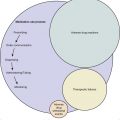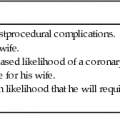Søren Holm
Ethical Issues in Geriatric Medicine
In one sense, there are no ethical issues or principles that are specific to geriatric medicine. Our moral status as persons do not change when we grow old, and older adults are due the same measure of respect and attention as the young.1 The clinical situations in which ethical issues arise are also, in most cases, very similar to clinical situations that may arise in other areas of medical practice.
In another sense, there are specific ethical issues in geriatric medicine caused by the following: (1) a stereotypical social image in many Western societies of older adults as less competent and less worthy of attention than younger individuals; (2) the complexities introduced because of the increased frailty that comes with older age; (3) the tendency in many health care systems to underfund geriatric medicine in comparison to other specialties; and (4) the complex interface between health care and social services for older adults.
This chapter will briefly review some core general elements of medical ethics as they relate to geriatric medicine before considering some of the ethical problems that occur frequently in geriatric medicine. These include decision making for incompetent patients, advanced decision making and the use of health care proxies, and research involving the incompetent and end-of-life issues. The final section will be concerned with resource allocation and the health care claims of older adults.
Respect for Autonomy
The cornerstone of clinical medical ethics is respect for autonomy or self-determination.2 Competent patients who are informed about the available treatment options can decide which of the treatment options they prefer and can also decide not to have any treatment at all. It is generally accepted in ethics and law that competent patients can refuse treatment even if that treatment is simple and lifesaving.
The main reason that we ought to respect autonomy in health care is that the decisions are about the life of the patient, and she or he has a right to be able to shape that life according to his or her own values and ideas about the good life.
In most health care systems, respect for autonomy is institutionalized in clinical practice through a requirement for valid, informed consent for diagnostic and therapeutic procedures. And, in research ethics, there is even stronger protection of autonomy through much more explicit informed consent requirements.
However, respect for autonomy entails more than just respecting the decisions people make; it also entails respecting them as the primary decision maker in relation to their own life. This means the following: (1) patients have to be involved in decision making processes at a point where there is real choice and before a default decision has already been made; (2) they should not be forced to make decisions before they are ready to make them; and (3) they have to be given the information that they require to make a decision, not only the information that a health care professional thinks is relevant.
Taking patients seriously as decision makers may therefore have implications for the way decision making processes are designed and structured at the ward or department level to ensure that patients are involved at the right time and that there is time enough for them to be properly informed. In a broader perspective, respect for self-determination also creates an obligation to promote people’s abilities to make decisions by promoting their autonomy. If there is something we can do which will enable a person to make autonomous decisions, we should do it. This may include clinically relatively trivial interventions (e.g., rehydrating a dehydrated and confused patient to bring her back to competence), but may also include patient education or the use of modern patient decision support programs.
Two common misunderstandings of what respect for self-determination means need to be mentioned. The first is that respect for autonomy entails that patients have to make all decisions themselves and that they cannot delegate decision making to other people—but delegating decision making is a perfectly autonomous thing to do. We all do it on a regular basis. There is nothing ethically problematic in a patient asking a physician to make the decision if the patient trusts that the physician is able to make a better decision, or in a patient involving a trusted relative or friend in the decision making. Forcing patients to make decisions they do not want to make is not respecting the patient’s self-determination.
The other common misconception is that people’s autonomy is respected by giving them what they want; for example, this means that if a person wants something, such as a specific treatment, there is a moral obligation to help her or him get it. Respect for autonomy only, strictly speaking, implies a negative duty of noninterference. Any positive duty to help cannot be derived from respect for self-determination. It has to be justified differently—for example, through some account of the professional obligations that flow from an established physician-patient relationship.
Paternalism
Paternalism is the term used for actions taken or decisions made for another person with the intention of benefiting that person. The word is derived from the Latin word for father; the idea is that a paternalist decision is like the decision a good father would make for his child.
It is important to note that an action can only count as paternalist if it is done to benefit the other person. Actions chosen and performed to benefit the physician or health care system, or with mixed intentions, are not paternalistic but simply coercive.
Paternalistic decision making is not problematic if the person in question is incompetent (see later). This situation is sometimes referred to as genuine paternalism. However, paternalistic decision making is problematic if the person is competent and wants to make her or his own decisions. In that case, the paternalistic action overrides the autonomy of the person. Paternalistic decision making can be justified in emergency situations, in which there is no time to consult the patient and it can sometimes be justified in a public health context, but it is rarely, if ever, justified in non-emergency interactions with individual patients. Patients may be frail and vulnerable, but as long as they want to make their own decisions, they are their decisions to make.
An increasingly common form of paternalism is what can be called informational paternalism. Informational paternalism occurs when a patient has clearly signaled that he or she does not want some piece of information about the condition (e.g., does not want to know the precise prognosis) but is sometimes given this information because the health care team thinks that … “it is best for him [or her] to know. …” This is sometimes supported by the claim that health care professionals have a duty to tell the truth to their patients. However, it does not follow that there is a duty to impress the truth on people who do not want to hear it. This is easily seen if we consider a parallel example. All of us have a duty to tell the truth to our friends, but this does not generate an obligation to provide unsolicited evaluations of their dress sense or latest haircut, even if those evaluations are true.
Dignity
In the context of geriatric medicine, respecting and preserving the dignity of patients is the second ethical consideration that takes center stage. Respect for autonomy and for the decisions of a person can be seen as part of preserving and respecting the dignity of that person, but dignity is a complex concept that is not exhausted by respect for self-determination.3
To treat someone in a dignified manner is to treat them in a way that recognizes that they are a complete person, with personal integrity and worth and a protected zone of privacy. Exactly what this means will vary from culture to culture and from time to time, but everyone in a culture will be able to identify a core set of behaviors that is undignified and disrespectful behavior. This is also an area where research focusing on the experiences of patients can play a role in making it clear when they experience care that is impinging on their dignity. It should come as no surprise that many older adults think it is undignified if they are shabbily dressed or if they are exposed naked or half-naked to the gaze of others.3
In this context, it is important to remember that some of the largest problems in relation to the protection of dignity are brought about by the numerous, small routine violations of dignity that may erode a person’s sense of personal worth and the staff’s sense of what is right and proper. Although the actions are done by individual health care professionals, the solution to this type of problem is often organizational.
Frailty, Clinical Complexity, and Ethical Decision Making
Respecting the autonomy and dignity of patients, and involving them in decision making about diagnosis and treatment is simple in principle, but becomes complicated for patients who are frail and may already have significant comorbidities. Hospitalization and treatment may trigger new problems and lead to loss of function, and our knowledge about the effectiveness of treatments and their side effects have often come from studies in patients specifically selected not to be frail or have major comorbidities. The risks that frailty creates need to be taken into account by the health care professionals in their decision making about appropriate treatment options and in communication and shared decision making with patients, families, and caregivers about these treatment options. This entails the following: (1) physicians need to have frailty in mind and not just the current problems, and (2) much more time may need to be spent in communicating the risks and benefits of available treatment options.4
Incompetent Patients
Not all patients are competent to make decisions about health care matters. Patients may become temporarily incompetent during an acute illness episode or become permanently incompetent, such as in the later stages of dementia. Health care and other decisions still have to be made, even when patients cannot make these decisions themselves.
The concept of incompetence initially seems to be straightforward. The normal adult is the paradigm case of an individual who is competent to make decisions, and that competence is lost if the person becomes unconscious, is very inebriated, or develops late-stage Alzheimer disease, in which almost all memory and most reasoning capacities are gone. Between the extremes of full competence and complete incompetence there is, however, a very wide range of situations in which a person is partially competent (competent to make certain decisions but not others) or where a person’s competence is questionable. This gray area is created by two complicating factors: (1) competence always entails competence to make a specific decision; and (2) we do not have a good account of exactly what it takes to be competent and how far you can deviate from the norm before you become incompetent.
That competence is always competence to make a specific decision is obvious in the case of children. It is not the case that one day they are completely incompetent to make decisions, and the next day they become fully competent. Even a 3-year-old is competent to decide which ice cream he or she wants when given the choice on a warm day at the beach. In the same way, people with dementia may be incompetent to make decisions about their treatment without being incompetent to make decisions about what to eat for dinner, what to wear, or when to get up in the morning.
The second complicating factor in decisions about competence is that it is unclear how rational and how informed a decision has to be to count as competent. Most decisions that people make do not conform to strict rules of rationality and are made in a situation of at least partial ignorance. Just think of how most of us decide on important matters, such as applying to medical school, buying a house, marrying, or starting to save for a pension. We do not seek all the information that we could have sought, and we do not always think through all the options carefully. This means that unless we want to rule most decision making as incompetent, and therefore possibly open to being overruled by others, we have to have a less stringent standard of competent decision making than full rationality and complete information.
We could try to say that what matters is not how the decision was made, but its content—that is, what decision that was made—but this is a problematic argument because we generally allow people to make foolish choices, even about very important things. The fact that a decision is not one that we would have made does not, on its own, make it an incompetent decision.
Here it is important to note that questions about incompetence are often only raised when patients make decisions that we don’t agree with. As long as the patients agree with us, we do not question their competence, and take their informed consent to treatment and diagnosis to be valid. This is in itself problematic. There are probably as many patients who make decisions that we do agree with, but for which we could have challenged their competence to make these decisions.
Decision Making for the Incompetent
In a situation in which one person has to make important decisions for another, often called proxy decision making, there are in principle two different ways in which such a decision can be made. These are commonly referred to as the substituted judgment standard and the best interest standard.5
According to the substituted judgment standard, the task of the decision maker is to try to make the decision that the incompetent person would have made, if competent. This might involve empathic identification with the patient to discern what the patient would have decided. The problem with this standard for proxy decision making is that it is not obvious which of the incompetent person’s characteristics should play a role. For example, should someone make rash decisions for a patient who was a rash decision maker all his or her life, or should the patient’s needle phobia be taken into account? Because of these problems, the substituted judgment standard has fallen out of favor.
The best interest standard specifies the task of the proxy decision maker as making the decision that is in the patient’s best interest—the decision that is most likely to benefit the patient. This is the standard that is accepted in most jurisdictions for legal decision making for the incompetent. The conception of best interest that is at play here varies widely. A patient’s best interest is not confined to his or her medical best interest (e.g., determining which treatment that is medically optimal) but also encompasses social issues. It is furthermore generally accepted that what is in a patient’s best interest is at least partly determined by the patient’s prior values and life goals. What is in the best interest of a Muslim patient may be different from what is in the best interest of a Christian patient. If understood in this broad way, and drawing on knowledge about the patient’s values, decision making guided by best interest will often become close to decision making guided by substituted judgment.
The term best interest seems to imply that there is one, and only one, decision and course of action that will promote the patient’s best interest, and that our task is to find that course of action, but this view rests on a mistake. There are many situations in which we will be unable to decide which course of action will benefit the patient most because of uncertainties about the clinical situation and/or uncertainties about the patient’s values.6 We are often able to identify some decisions that are clearly not in someone’s best interest without being able to specify one of the remaining options as the one that clearly best serves the patient’s interest. This means that there can be legitimate disagreements within health care teams or between health care professionals and families or caregivers about best interest judgments, without any of the parties clearly being wrong.
Stay updated, free articles. Join our Telegram channel

Full access? Get Clinical Tree







